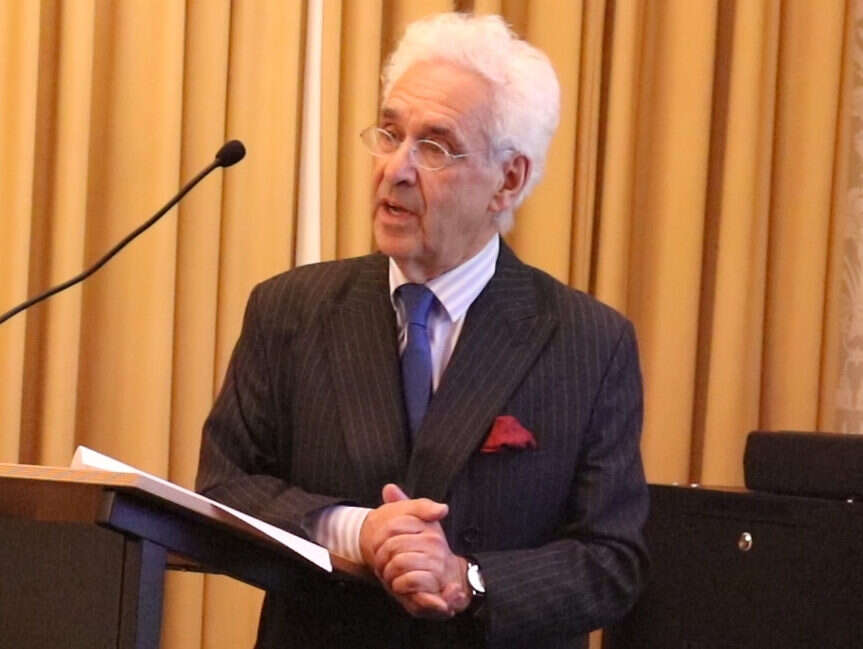
The outgoing chairman of the Independent Press Standards Organisation has revealed that it is examining its guidelines on discrimination, describing it as the “greatest issue IPSO has had to grapple with”.
But, in an interview with Mirror editor Alison Philips at the Law Society in London last night ahead of his departure this month, Sir Alan Moses added: “There is no right not to be offended.”
IPSO’s code says the press “must avoid prejudicial or pejorative reference to an individual’s, race, colour, religion, sex, gender identity, sexual orientation or to any physical or mental illness or disability”, and that such details must only be mentioned if genuinely relevant to the story.
But it limits the scope of the cause to discrimination against individuals, rather than religious or gender groups who are subject to pejorative stories, and it often refuses to consider third-party complaints.
Sir Alan said this was the “biggest criticism” made towards IPSO during its five years of existence, adding: “In my view you have to strike a balance between allowing the press to write critically and pejoratively about a religious group rather than banning it”.
He added it was a “very difficult proposition to argue in favour of” but that there is “no right not to be offended both under the law and under the regulations in this country”.
“The way I justify it, and I acknowledge it’s difficult, is that a balance has to be struck.”
Sir Alan argued that it would be “deeply offensive” to write “rude things” about the abuse of children by Catholic priests, adding: “Are we going to have a rule that says you’re not allowed to?”
He added: “This is one of the questions we are daily asking ourselves and grappling with at IPSO – are we going to have a rule that says the press must not offend? Are we going to have a rule that says the press must be balanced, tasteful, decent, fair?
“You could strive to have all those rules, but I don’t think that would be an acceptable way of running the printed media because of what we would lose.”
The former judge acknowledged the difficulty and seriousness of drafting something like Clause 12 of the Editors’ Code, saying: “We all know that if you write something offensive it can be dangerous because those who wish to stir up racial hatred will use that material as the baseline on which to build and I am very conscious of that danger.”
He revealed IPSO has begun an internal inquiry into Clause 12 “in a neutral way”.
An IPSO spokesperson confirmed to Press Gazette that the regulator was in the early stages of looking at the issues and that it was too soon to say what could come of it, but rowed back on labelling it an inquiry.
Phillips asked Sir Alan if it was fair that IPSO had reported former Sun columnist Katie Hopkins’ cockroaches piece to the police, even though it rejected more than 400 complaints about it in 2015.
She added: “As a press regulator shouldn’t that really fall to you?”
Sir Alan responded: “I think that’s a very fair point and I’m sure that’s one of the things that our investigation into clause 12 will look at.”
He also stressed that there were many complaints not upheld by IPSO’s Complaints Committee, which he chairs, about stories that its members have been “deeply disapproving and unhappy about”.
It is “simply untrue” that IPSO endorses any story that it does not uphold a complaint against, he added.
Asked whether press standards had improved over the past five years of IPSO’s existence, Sir Alan said the regulator, which is paid for by its member publishers, had “made newspapers take the whole issue of self-compliance far more seriously than they did before”.
“Talk to those who are victims of it and they won’t believe this,but privacy I think they take more seriously, gratuitous intrusion on privacy.
“They certainly take suicide more seriously, writing about that and intrusion on grief more seriously and I also think one big change has been the speed at which they are prepared to consider complaints.”
IPSO issued new guidance on the reporting of suicides last year and is currently planning to do the same for writing about Muslims and Islam. This could “set a pattern” for guidance relating to other groups, Sir Alan said.
Picture: IPSO
Email pged@pressgazette.co.uk to point out mistakes, provide story tips or send in a letter for publication on our "Letters Page" blog







